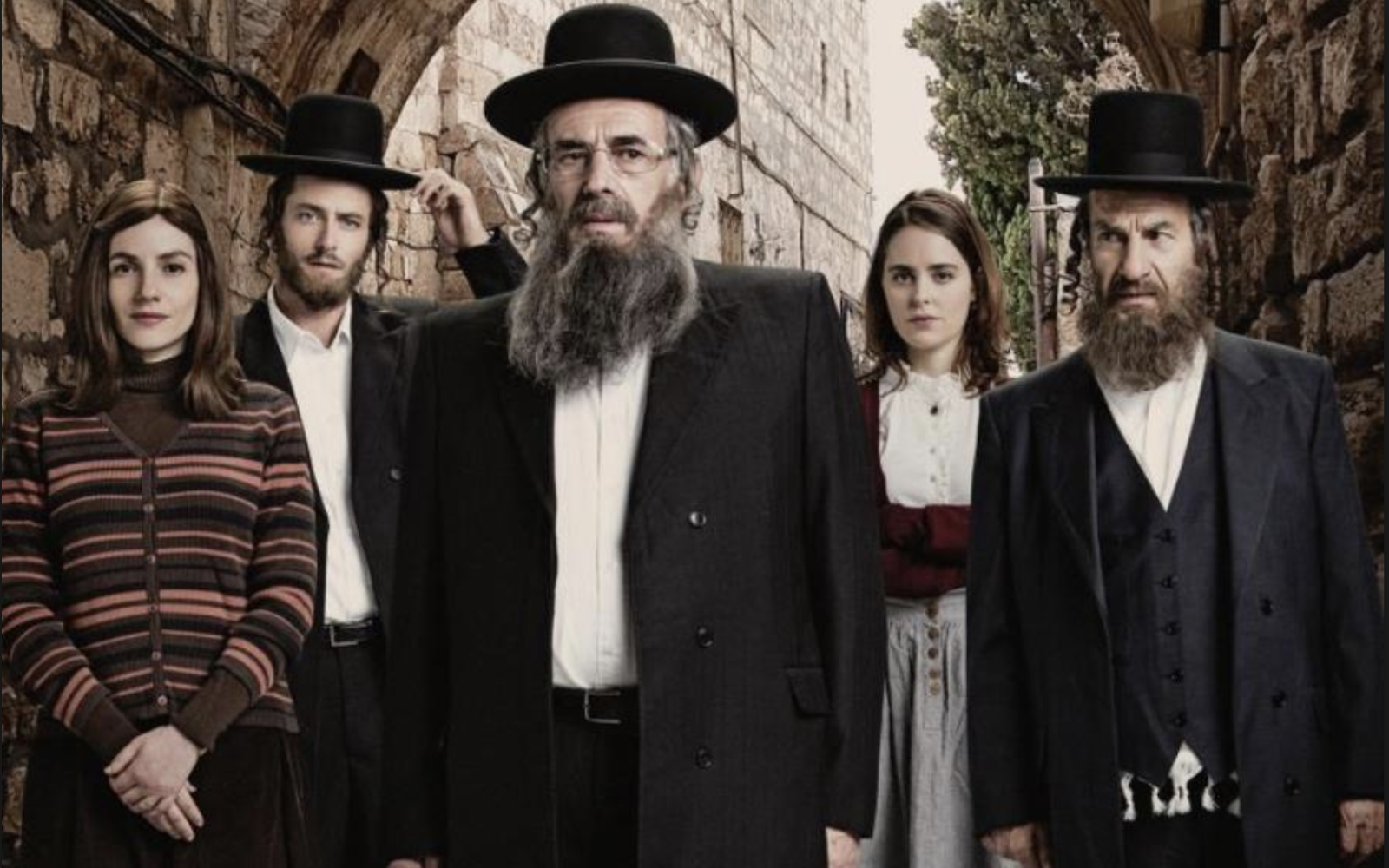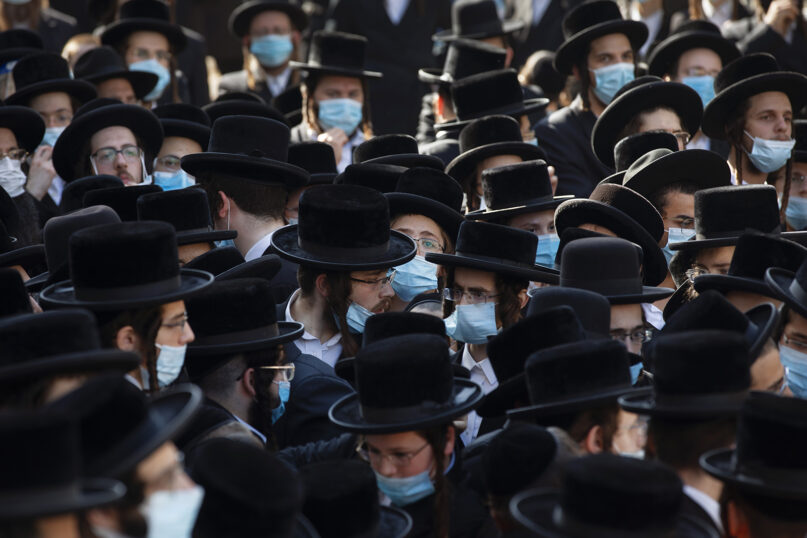(RNS) — I am talking with a few old friends about “Shtisel.”
“I tried to like that show,” one of them said about the Netflix series about Haredi Jews in Jerusalem, which recently released its third season. “But, I simply can’t. Frankly, I cannot stand those people. I don’t know what it is, but they simply rub me the wrong way.”
On the Zoom screen, I could see the others — all of us Jews — nodding their heads.
Over the last few weeks, I have been thinking out loud about “Shtisel-mania.” Many Jews love “Shtisel” and have been bingeing on it.
Not only Jews — non-Jews as well. Americans find “exotic” religions fascinating, and for many people, “Shtisel” provides that exotica.
RELATED: Why ‘Shtisel’ matters
What would happen if I were to encounter the “Shtisel” characters in real life?
It would not be pretty.
There are a number of things that they would find abhorrent about me.
First, our religious worldviews. Haredi (“black hat”) Jews live in a self-defined geographic and cultural ghetto. They live strictly within the confines of halacha (Jewish law). Their dress, their language (much more Yiddish than Hebrew), their day-to-day activities mark them as “different” Jews.
I, by contrast, am a Reform rabbi. I am university-educated. I have studied our sacred texts, mixing piety with a critical assessment of their place in Jewish and world history.
I avoid biblically prohibited foods, but I am hardly strictly kosher. I honor Shabbat with restrictions on my activity, but I am nowhere close to what they (and other traditional Jews) would call shomer Shabbat.
Moreover, I refuse to see their way of observance as the gold standard of Judaism. Many of their strictures do not emerge from Torah, or even from rabbinic Judaism. Their worldview is the remnant of medieval Ashkenazic Judaism — a Judaism that felt the pressures of persecution, and then of modernity, and needed to “tighten up” observance. Their distancing from secular education would have nauseated Maimonides.
Finally, their sexual, social and gender mores are not mine. I find the role of women in their society to be problematic. I hate the oppressive nature of divorce in that community. As for LGBTQ Jews in that community — watch “Trembling Before G-d.”

Image courtesy of Netflix
Our politics are vastly different. As Uncle Nuchem in “Shtisel” makes clear through his snorting about the Zionist “evildoers,” they are anti-Zionist. They have no use for the Jewish state — a secular state which the Messiah did not herald or create.
They tend not to serve in the Israel Defense Forces (though this is changing). As you can well imagine, their aloofness from Israeli life — the aloofness of Jews floating over the city as in a Chagall painting — has become a source of alienation between them and many Israeli Jews.
That is just a short list of our differences. I prefer my way of life. While I respect their right to be different (diversity and multiculturalism, folks), I do not personally embrace those differences.
Why do I still love the hareidim, even if I don’t like their worldview and their way of doing Judaism?
It is about that holiday that happens this week — Yom Ha Atzmaut.
As my teacher Yehuda Kurtzer of the Shalom Hartman Institute has said, we Jews are in “memory season.” In the days after Pesach, in rapid succession: Yom Ha Shoah, remembering the Holocaust; Yom Ha-Zicharon, recalling the fallen of the state of Israel; and Yom Ha-Atzmaut, Israel’s celebration of independence.
These days remind us of something very precious: We Jews are a small people, but we are a large family.
In the words of Rabbi Joseph Soloveitchik: We Jews are bound together by a brit ha-goral, a covenant of fate. For me, that cuts across all lines within the Jewish community. The hareidim are my family. Like some of my family members, I don’t particularly like what they do. I might not invite them to sit at my table (nor would they invite me, as well). I might even be embarrassed by some things that they do.
But, because I believe in that covenant of fate, we are stuck with each other. We are the same people. My great-grandparents were of their ethnic stock; they simply made different choices. We share the same holidays. We share the same texts; blessed are the moments when we are able to study them together, and feel our mutual lifeblood coursing through our veins.
A friend asks: “And do you think that they (the hareidim) feel that you are part of the same people?”
My answer: “I think so. And/or: I don’t care. My love for them need not be reciprocal.”
(Though it would be nice.)
The celebration of Israel reminds us all that the Jews are a family. You don’t have to romanticize the hareidim (in fact, I recommend against doing so). You do not have to believe that they are the “authentic Jews” (in fact, I even more strongly recommend against doing so).
But, as I have often mused to myself, the Nazis made no distinction between the suave, sophisticated, acculturated Jews of Berlin and the bearded, pious Jews of Eastern Europe.
They all went up the same chimneys.
Which leads me to one last thing about the hareidim. It is about their large families.
Eight, nine, 10 children.
That demographic poses challenges to Israeli society — economic, sociological and political.
RELATED: Reform US rabbi in Dresden explains ultra-Orthodox traditions to German Jews
I get it.
And yet, whenever I see those large families; whenever I contemplate the importance and sanctity of fecundity within that community — I cannot and will not snicker, despite all the modern challenges and quibbles.
As my late teacher, Rabbi David Hartman, once taught: They shouldn’t take visiting diplomats to Yad Va Shem as the first stop after arriving in Israel. They should take them to the maternity ward of Hadassah Hospital.
Here is why.
Each infant, each child is a raised middle finger to Hitler.






